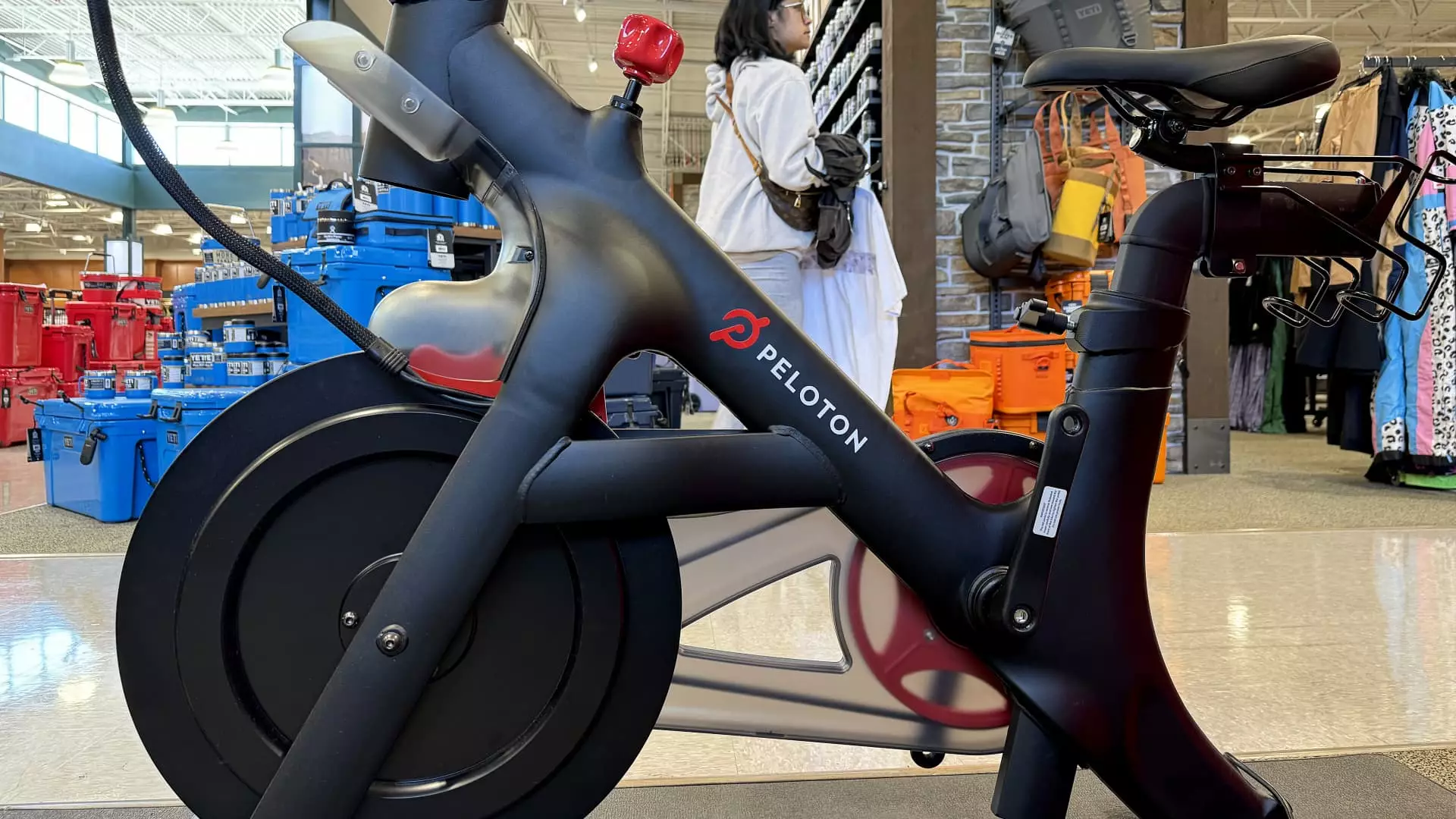Peloton is reimagining its business strategy with the launch of its innovative resale marketplace, Repowered, and much can be said about the implications this move carries for the future of the fitness industry. This 5% solution isn’t merely about enabling transactions; it’s a calculated gambit to reclaim both market share and brand loyalty amidst an increasingly competitive landscape.
The Resale Revolution in Fitness Equipment
As the pandemic-induced boom for home fitness recedes, Peloton finds itself facing a disheartening reality: many of its high-tech bikes and treadmills now serve as extravagant clothing racks. These costly investments, which once promised a path to fitness, have turned into a burden for countless customers who have since canceled their subscriptions. This scenario has created a thriving secondary market for used Peloton gear, and rather than ignoring it, the company is stepping in with Repowered.
By creating a controlled marketplace, Peloton is stepping away from the unpredictable chaos of platforms like Facebook Marketplace. With dedicated protections in place for buyers and sellers, the brand seeks to alleviate concerns about fraud and ensure that transactions are safer and more reliable. This move is not just smart; it’s progressive, acknowledging the realities and needs of current consumers while also striving to enhance their buying experience.
Leveraging AI for Smart Pricing
What truly sets Repowered apart from competitors is its use of generative AI to price items effectively. Gone are the days when sellers must navigate the complexities of valuation alone. Instead, Peloton employs technology that factors in the product’s age and condition, ensuring that listings are competitive and attractive to buyers. This isn’t merely a feature; it’s a statement about the future of e-commerce.
While it’s important that sellers retain the ultimate decision on pricing, the integration of AI adds an intelligent layer that reflects a sophisticated understanding of market dynamics. In an era where technology drives consumer behavior, Peloton’s salting of innovation into its marketplace could very well elevate the shopping experience, allowing for more transparent transactions.
Financial Incentives That Make Sense
Peloton provides a clear financial incentive for users to engage with Repowered. Sellers retain 70% of the sale price—an attractive offer that contrasts sharply with the comparatively low return rates prevalent in traditional resale marketplaces. Additionally, purchasers are enticed by reduced activation fees, effectively lowering the barriers to entry for those who may have hesitated to invest in a new Peloton system.
This strategic move significantly diversifies Peloton’s revenue streams. Rather than solely relying on subscriptions, the company can now tap into the flourishing resale market, capturing a portion of money that would have previously slipped through its fingers. This proactive approach is indicative of how modern businesses should operate: recognize opportunities that arise from consumer behavior and pivot accordingly.
A Challenge to the Status Quo
Repowered is not just another marketplace; it positions Peloton as a direct competitor to emerging startups like Trade My Stuff, which specialize in the resale of Peloton equipment. While collaboration was once in discussions, Peloton has chosen to forge its path—one that could be perilous if not executed flawlessly. As it currently stands, the brand enjoys a vast community of passionate users. However, it must also contend with criticisms about usability and consumer loyalty.
The stark reality is that if Repowered fails to deliver on its promises, it could exacerbate existing grievances. If users find the platform cumbersome or feel that their trust has been violated, Peloton could face backlash that tarnishes its brand image. Making sure that both buyers and sellers experience a smooth transaction will be essential for the platform’s sustainability.
A New Chapter in Peloton’s Journey
Launching Repowered initially in cities like New York, Boston, and Washington, D.C. sets the stage for testing and refinement before a broader rollout. This strategic approach allows Peloton to gather data, listen to feedback, and fine-tune operations— paving the way for a more extensive launch.
What lies ahead is unclear, but one thing is certain: in an industry constantly reshaping itself, Peloton is adopting an agile mindset, aiming not merely to survive but to thrive in a competitive environment. The question now is whether Repowered can live up to its promise as a transformational force or if, like its equipment, it risks being underused and outgrown.

